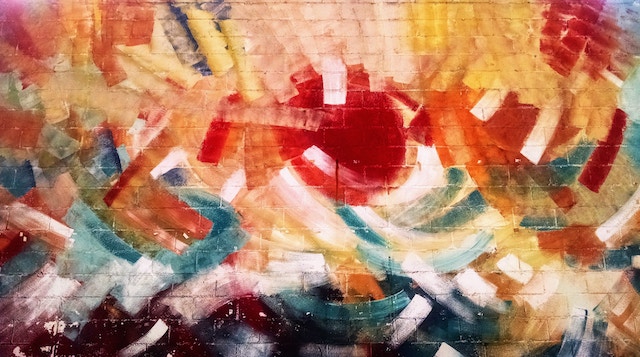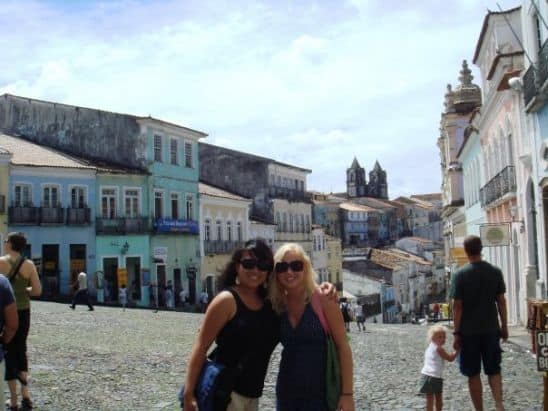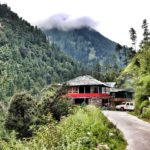Salvador, Brazil: A City Which Truly Never Sleeps

On August 23, 2008, I was on the way to JFK airport – all packed and ready to embark on my first adventure to South America. Destination? Brazil.
I have since made my way back to this amazing country two more times. It was an extraordinary challenge of simultaneously finishing up my college degree, working two jobs, and scrounging around of enough money to fulfill my traveling urges.
I don’t want to speak for all seasoned travelers, but most people’s first taste of Brazil usually begins in Rio de Janeiro. A city in which, in my opinion, receives more media attention. While Rio de Janeiro is a beautiful city which doesn’t disappoint, my long-standing complicated but beautiful relationship with Brazil all started in Salvador.

My family, friends, and co-workers warned me that the city would be “flocking with dangers at every corner.” Did these words of wisdom scare me? Not really.
When I arrived in Salvador, my knowledge of Brazilian culture was poorly researched and misguided. I knew and studied virtually no Portuguese and relied on my Spanish (a language which I only studied during high school). Also, my family, friends, and co-workers warned me that the city would be “flocking with dangers at every corner.” Did these words of wisdom scare me? Not really. I wouldn’t consider myself fearless, just a little more curious than the average person.
My program was located in the neighborhood called Barra (pronounced like “Ba-ha”), one of the more traditional and well-known neighborhoods in the city. I was living with three other girls from my program in a comfortable flat/apartment (“Farol Barra Flat”), overlooking the Porto da Barra Beach. Though it was technically winter (June-September in Brazil), it was still quite warm (more or less 80 degrees)-definitely a lot warmer than our summers here in Seattle! The first thing I did was drop off my bags and run off to the beach. It was in the middle of the afternoon, and the beach was crawling with people (locals, tourists, and vendors galore).
To the left was a crowd of teenagers playing futebol (soccer) and people jogging near the water. To the right, was a young man showing off his capoeira moves to several women, and all around me, were vendors (men and women, young and old) walking up and down the beach under the blistering sun carrying all sorts of items to sell. One can buy practically anything on the beach and the vendors are there until dark. Roasted cheese topped with spices on a stick? Yes, please.
Also, my family, friends, and co-workers warned me that the city would be “flocking with dangers at every corner.” Did these words of wisdom scare me? Not really.
Brazilians are typically very friendly people, but Baianos (people born in Bahia) are unequivocally some of the friendliest people I’ve ever encountered. And this reputation stayed true as I continued to travel throughout the country afterward. Our group only stayed in Bahia for two weeks before we migrated to the Amazon, but during our stay, we met a variety of locals who enjoyed our company and vice versa. My good friend briefly mentioned she wanted to learn how to surf, so this man offered to take her out the next morning for her first lesson.
We also were invited by a group of young kids to play to futebol. And despite (my) serious lack of rhythm and skills, I enjoyed dancing the night away with men – transfixed by the percussion of traditional African-influenced music. Regardless of the massive language barriers (and my sub-par dancing), no one ever laughed at us or made us feel bad. Though I knew I stood out as a foreigner, I generally felt pretty comfortable in this city.
One can’t leave Barra until watching the sunset on the beach or at Farol da Barra (Barra Lighthouse). I always found people (mostly couples) flocking there during the afternoon.
Bahian food is some of the best food I have tasted in Brazil (the state of Minas Gerais comes pretty close). One must love seafood and meat to really enjoy these dishes. Examples: moqueca (fish in a coconut stew), acaraje (deep-fried cake filled with seafood, spices – kind of like a Brazilian falafel), and feijoada (a hearty beef stew).
Salvador is also known for its historical center, Pelourinho (“Peh-low-reenyo”), which has changed a lot over the years. I won’t go into the history, but it’s interesting how the city center got its name (Google it). Pelourinho is the city’s tourist attraction: streets of old, colorful, colonial buildings sitting on cobblestone ground. Lots of music, art, capoeira, markets, and food to taste. The nightlife is another story! Live music + strong caipirinhas (the traditional Brazilian drink) + crowds of people = !!!
Brazilians are typically very friendly people, but Baianos (people born in Bahia) are unequivocally some of the friendliest people I’ve ever encountered.
Aside from the scenery and tourist attractions of Salvador, I learned a lot about the city’s rich and complex history and culture (once the center of Brazilian slave trade). The city “retains a strong African flavor in all aspects of its culture” – we were educated on the Catholic-African religion known as “Candomble” and we also received the opportunity to practice capoeira (an art form which combines martial arts, dance, and music).
We also visited Bahia Street, the center of a non-profit organization based in Salvador, which is dedicated to breaking the cycles of poverty and violence by providing educational opportunities for girls and young women with impoverished backgrounds living in the shantytowns of Salvador. This unique grassroots organization was started by two remarkable women (a woman from Bahia and a woman from the States) and continues to be a strong force in social change.
I should mention that I initially was headed on a different study abroad program in Rome, Italy. A spot in the Brazil program was open when a girl decided to drop out, so a friend convinced me to switch over. I was told this girl got freaked out by all the potential risks (infectious diseases, city crime and violence, etc) and changed her mind. True story. The timing was perfect as I had not yet purchased my airline tickets to Italy. Destiny, or whatever you may call it, led me to Brazil. And since then, my life hasn’t been the same.
Salvador, Brazil: A City Which Truly Never Sleeps top photo by Unsplash.









Heard some great things about this city, last time we went to Brazil we didn’t make it but next time we gotta change that!